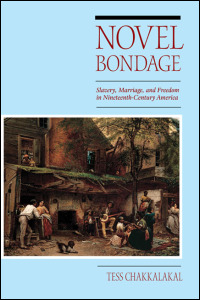 On July 24, 2011, the day New York’s Marriage Equality Act took effect, all 823 couples who registered through a lottery system in New York City were granted marriage licenses. City clerks’ offices, conventionally closed on Sundays, opened in all five boroughs with judges on hand to officiate and to waive the state’s mandatory 24-hour waiting period between licensure and wedding ceremony. According to the New York Times, 659 couples had picked up their licenses and 484 wed in city marriage bureaus.
On July 24, 2011, the day New York’s Marriage Equality Act took effect, all 823 couples who registered through a lottery system in New York City were granted marriage licenses. City clerks’ offices, conventionally closed on Sundays, opened in all five boroughs with judges on hand to officiate and to waive the state’s mandatory 24-hour waiting period between licensure and wedding ceremony. According to the New York Times, 659 couples had picked up their licenses and 484 wed in city marriage bureaus.
It seems to have been just as important for the state as it was for the individuals getting married that these same-sex couples were granted marriage licenses as quickly as possible. Having been denied the right to marry for so long, these couples, as the logic goes, should not have to wait a single day longer to enter the coveted institution of legal marriage. These weddings have, as both advocates and opponents of the new law insist, changed the meaning of marriage in the United States. New York’s new law is considered by most gay rights activists to be a great victory for the movement, bringing to an end decades of political and social protest.
Several advocates of same-sex marriage have rightly drawn parallels between the movement to legalize same-sex unions and the government’s move, following the Civil War and the legal end to slavery, to legalize “slave-marriages” in the late 1860s. Just as today, hundreds, if not thousands, of former slave couples retrieved marriage licenses seeking the rights and responsibilities that are tied to legal marriage.
Slaves, like same-sex couples, were denied the legal right to marry. Following the Civil War and the legal end of slavery in the United States, the federal government (under the auspices of the Freedman’s Bureau) became deeply engaged in the effort to make slave unions legal. This move was seen as essential to bringing freedom into the everyday lives of the formerly enslaved. The feeling of jubilation and relief former slaves experienced upon having their unions recognized by the law is well documented. Those feelings of joy experienced by those former slaves who took the trouble to register their unions with the Freedman’s Bureau soon turned to fear and terror when the Freedman’s Bureau was dismantled in 1869 and the period known as Reconstruction in the South came to a premature end.
Though their marriages were now legal, African Americans in the South during the latter half of the nineteenth century were subject to greater violence and poverty than during the decades prior to emancipation. Jim Crow laws erected following emancipation were, at least in part, intended to protect the sanctity of marriage between white men and white women that was threatened when African Americans were granted the legal right to marry. Keeping whites and blacks separate led to the lynching of black men and women throughout the South who attempted to cross the color line through marriage. Central to the Jim Crow system was the enactment of new state laws prohibiting “interracial marriage,” laws that would not be officially overturned until the historic Loving v. Virginia Supreme Court case in 1967.
Looking back on this period of history suggests that granting legal marriage to former slaves was the first step toward legal segregation rather than freedom. For many African Americans, legal marriage proved to be less of a protection against racial forms of violence and injustice than a form of social control, keeping former slaves tied to one another and their slave pasts, making it virtually impossible to move forward.
Turning to this dark period of American history sheds considerable light on the political debates over marriage today. It is, in some respects, a cautionary tale for those who believe that marriage marks the end to inequality and discrimination. Indeed, it may just mark a new beginning.
*****
Tess Chakkalakal, Assistant Professor of Africana Studies and English at Bowdoin College, is the author of the new book Novel Bondage: Slavery, Marriage, and Freedom in Nineteenth-Century America.
